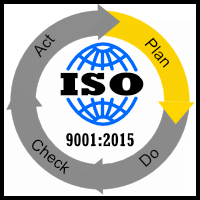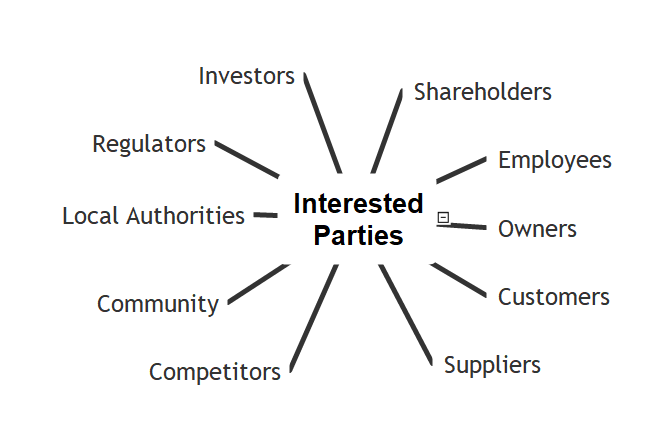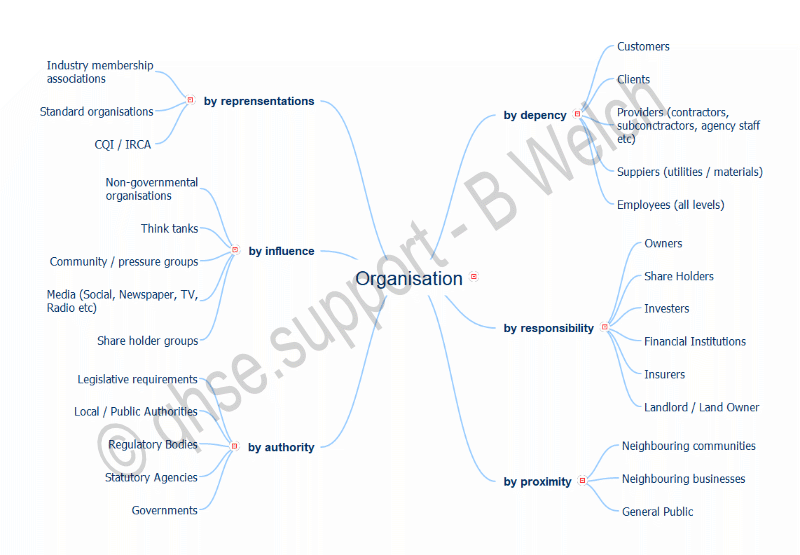|
|
ISO 9001-2015 4.2 Interested partiesSend comments on this topic |
FREE QHSE Software Click <HERE> to Learn More |
||
QHSE Support >(Site Map) Quality Guidance > ISO 9001-2015 Clauses > ISO 9001-2015 clause 4 >
ISO 9001:2015 Clause 4.2 Understanding the needs and expectations of interested parties
|
PLAN |
DO |
CHECK |
ACT |
Clause 4.2 Breakdown
4.2 Understanding the needs and expectations of interested parties
The first thing to understand is what are interested parties?
Note: Within the standard stakeholder is an admitted term – to this end it has the same meaning as the term interested party.
Interested parties are those that can effect or potential effect the organization's ability to consistently provide products and services that meet the customers requirements. These interested parties can be internal and external in origin, and have both a negative and positive impact on the organization (others prefer the term risks and opportunities).
In short, interested parties must be relevant to the quality management system.
The organization shall determine:
•the interested parties that are relevant
•the requirements of these interested parties.
•monitor and review information about these interested parties and their relevant requirements
The emphasis is on identifying relevant interested parties, however the list for most organizations will go beyond "customers and suppliers, owners, employees, regulatory agencies, and financial institutions. When identifying interested parties their needs and expectations require to be considered.
So what are needs and expectations?
•Needs - a requirement, necessary duty, or obligation that is essential or very important to the quality management system.
•Expectations - a strong belief that something will happen or be the case.
Some examples of needs and expectations might be:
|
Interested Parties |
Needs |
Expectations |
|
Shareholders |
profit |
a return on their investment / organizational influence (major shareholders) |
|
Suppliers |
orders |
timely payments / a mutually beneficial relationship |
|
Employees |
work security |
workplace wellbeing / career opportunities |
|
Customers |
fit for purpose |
value for money / delivery times met |
|
Regulatory bodies |
compliance |
co-operation, openness and of course evidence |
ISO 9000:2015 3.2.3 defines interested parties as "Stakeholder: person or organisation that can affect, be affected by, or perceive itself to be affected by a decision or activity".
This breaks interested parties that can affect your quality management system into three groups:
1.can affect
2.be affect by
3.perceive to be affected by
Most interested parties will fall into more than one of these three groups, for example:
A simple table can be used to provide a visual guide.
|
Interested Parties |
can affect |
be affect by |
perceived to be affect by |
|
Shareholders |
X |
X |
|
|
Employees |
X |
X |
|
|
Owners |
X |
X |
|
|
Customers |
X |
X |
|
|
Suppliers |
X |
X |
|
|
Competitors |
X |
|
X |
|
Local Neighbourhood |
X |
|
X |
|
Regulators |
X |
|
|
|
Local Authorities |
X |
|
|
|
Investors |
X |
X |
|
Note: Each organization needs to decide the type of relationship they have with their respective interested parties.
Where will I find this information?
Most organizations will already be aware of most of their interested parties, even if they did not know it. Typical places to look will be business plans, project plans, contracts, tenders, regulatory compliance policies / instructions, in-house compliance documentation. Another source could be the statistical and performance reports the organization produces, who are they for, who else sees them and why? Whilst there is no requirement for documented information for clause 4.2, having even a brief summery or table of where interested parties have been identified and their needs and expectations isn't such a bad idea...
Every organization will have its own unique set of interested parties, which can change overtime, it is therefore important to continually monitor and review interested parties and make changes as necessary.
Mind-map of sample interested parties;
Expanded mid-map of interested parties.
Useful integrated management system cross references
ISO 14001-2015 4.2 - Understanding the needs and expectations of interested parties
ISO 45001-2018 4.2 - Understanding the needs and expectations of workers and other interested parties
Help file v2.276.407 : QHSE Support - Website On Safe Lines
onsafelines.com QHSE Software 2025 : Webmaster: Brian G. Welch MSc(QHSE), NVQ4(OH&S), CMIOSH





